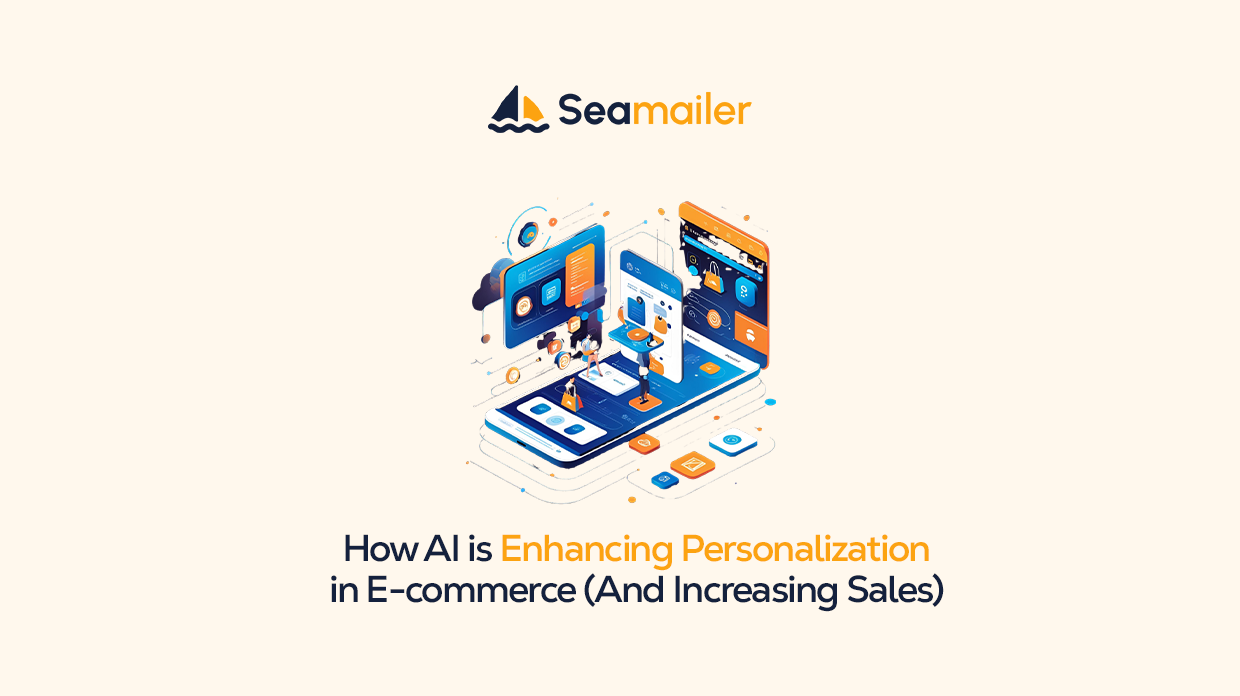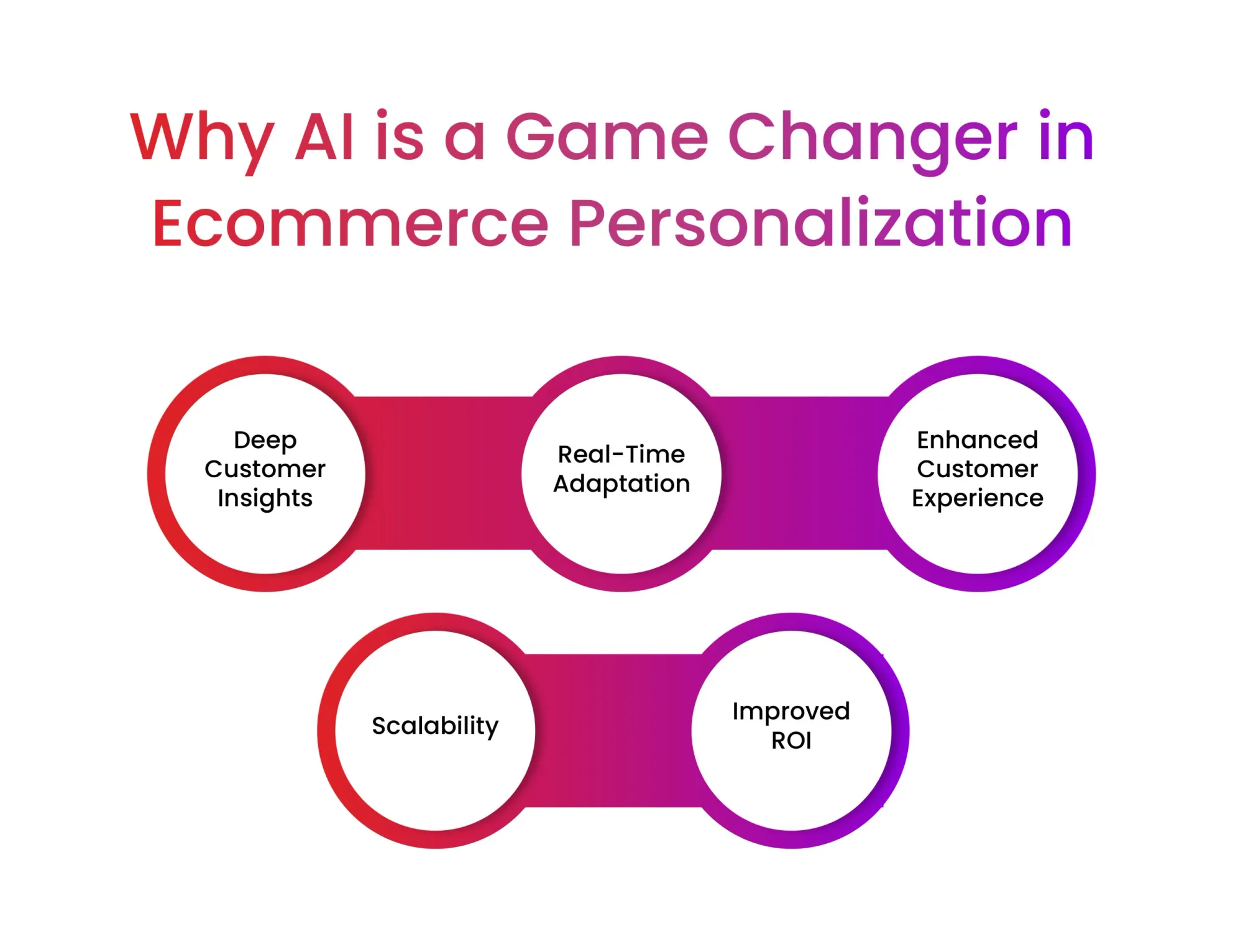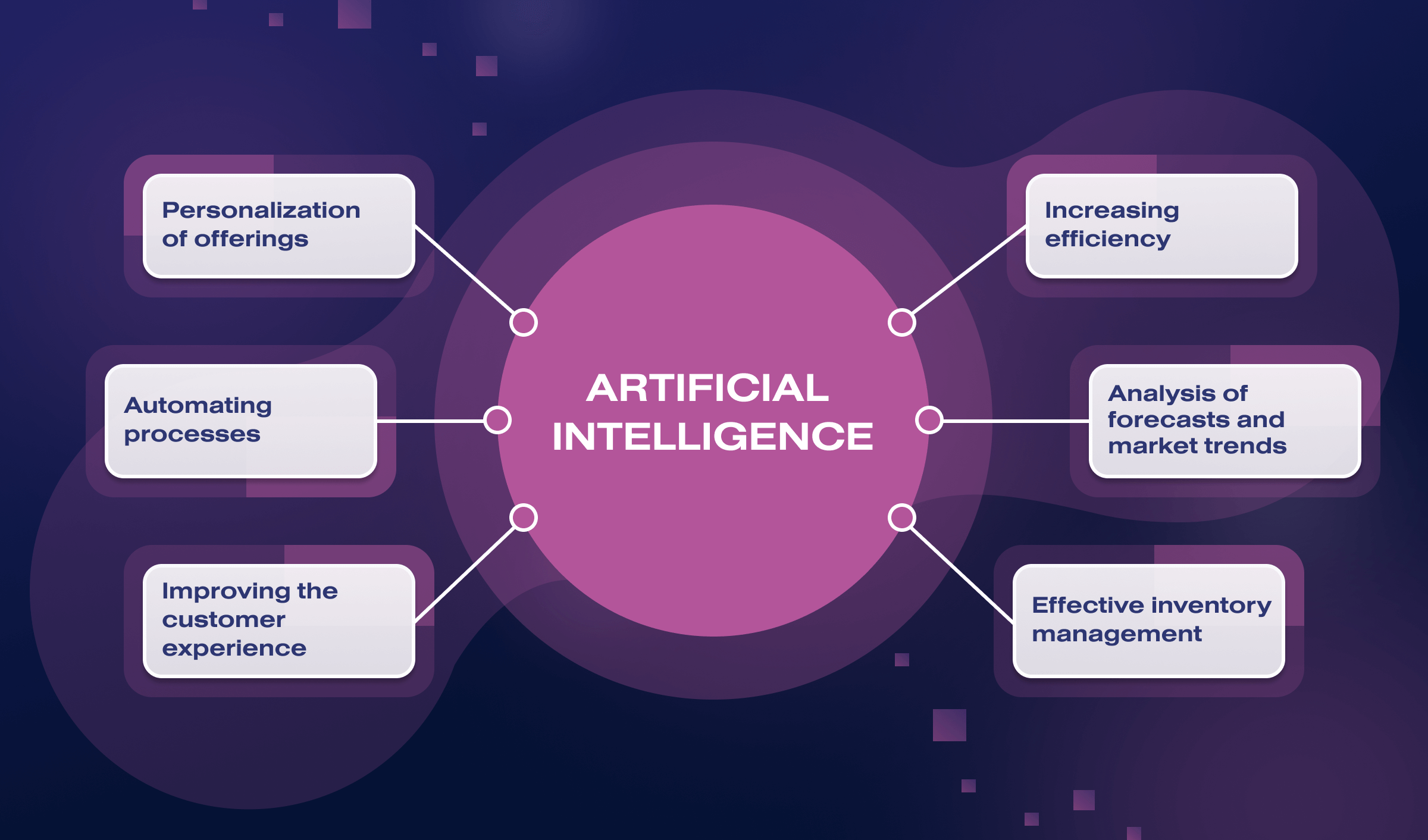How AI is Enhancing Personalization in E-commerce (And Increasing Sales)

E-commerce has transformed how individuals shop, making it easy, varied, and available at their fingertips. However, with this convenience comes the challenge of being noticed in an ocean of online shops.
Personalization is currently the ecommerce differentiator, allowing brands to buil meaningful relationships with consumers, boost engagement, and drive sales.
Artificial intelligence (AI) is leading this revolution by offering advanced solutions to understand consumer behavior, predict preferences, and offer individualized shopping experiences.
This article explores how AI is enhancing personalization for e-commerce and, in turn, driving sales.
Understanding Personalization in E-commerce

E-commerce personalization refers to the method of tailoring the shopping experience for unique customers based on their behavior, tastes, and past interactions with a brand. Instead of offering a one-size-fits-all solution, businesses leverage data-driven intelligence to create experiences that are distinct for each shopper. Personalization helps to improve customer satisfaction, boost engagement, and ultimately generate higher sales.
Traditional forms of personalization such as demographically segmenting customers manually are no longer sufficient in today's fast-moving digital age. Personalization powered by AI takes it to the next level by leaning on machine learning, predictive analysis, and natural language processing to give highly dynamic and personalized shopping experiences.
Why Personalization Matters in E-commerce
The customer of today demands more than a generic e-commerce experience. With numerous online shops vying for their attention, customers opt for brands that understand them, understand what theyneed, and suggest products according to their unique requirements. Personalization matters because:
- It Improves Customer Experience
When a customer stops by an internet store and they notice product suggestions that cater to their interests, they will make a purchase more likely. Customer personalization enables customers to feel appreciated by indicating to them information, promotions, and products aligned with their wants. - It Boosts Conversions and Sales
By presenting customers with what they are likely to buy, businesses can significantly increase their conversion rates. Instead of having to navigate through products they don't care about, customers are guided toward the matters that are closest to their hearts, making them make purchasing decisions sooner. - It Enhances Customer Loyalty
When customers feel that an online shop understands them, they will return for repeat orders. Personalization creates more robust connections between brands and customers, leading to more retention and lifetime value. - It Reduces Decision Fatigue
Online shopping is painful with endless choices. Personalization simplifies the decision process by offering relevant choices, reducing the mental effort of finding the right product. - It Boosts Engagement and Interaction
Personalized messages, push notifications, and product suggestions encourage customers to spend more time with a brand. Active shoppers are more inclined to exceed other products and avail themselves of promotions.
The Role of AI in E-commerce Personalization
AI has played an essential role in e-commerce personalization by modernizing and sophisticating many inherent aspects of shopping. Let's see the key means through which AI is accelerating personalization and more sales.

AI-Based Product Recommendations
One of the most visible and impactful uses of AI in e-commerce is personal product recommendations. AI takes large amounts of customer data, including browsing behavior, purchase history, and usage trends, to figure out what a consumer is most likely to be interested in.
For example, if a customer visits an online fashion store, AI can suggest apparel based on their style based on previous purchases or products bought together. Not only does this enhance the shopping experience but also increases the likelihood of subsequent purchases, leading to increased sales.
Dynamic Pricing for Personalized Offers
AI enables dynamic pricing, where the price of a product is dynamically changed in real time based on demand, competitor prices, and customer behavior. This enables customers to receive the best price while companies maximize their profit.
For instance, an online electronics retailer can offer one-time discounts to repeat buyers or dynamic pricing for browsing behavior. If a person frequently visits a particular product page but never bought from it, AI can generate a time-limited discount to compel conversion.
Smart Chatbots and Virtual Assistants
AI-driven chatbots and virtual assistants are changing the way customers interact with them by offering personalized assistance 24/7. These smart assistants are equipped with natural language processing (NLP) to interpret customer questions and provide personalized suggestions.
Assume a customer is looking for a skincare product but has no idea what to pick according to their skin type. An AI chatbot can ask relevant questions about their skin problems and preferences before recommending suitable products. This customization raises customer satisfaction and boosts sales.
Personalized Email Marketing Campaigns
Email marketing is among the most powerful e-commerce weapons, and AI is making it even more powerful. AI-driven email marketing software like Seamailer analyzes customer interactions to send highly personalized emails depending on a customer's preferences and behavior.
For example, if a customer abandons their shopping cart, AI can send them an automated reminder email regarding their pending purchase and even offer a discount. Similarly, AI can segment email lists based on purchase history and interest to send personal product recommendations and offers.
Enhanced Search and Visual Identification
Traditional search facilities result in extraneous listings and frustrating customers. AI optimizes search results by understanding natural language terms, synonyms, and surrounding context. Advanced visual recognition algorithms also allow buyers to browse products based on images instead of written descriptions.
For example, a customer can upload a picture of a dress that they had seen on social media, and the search engines powered by AI will find similar dresses that are available for purchase. This seamless experience increases conversion rates and customer satisfaction.
Predictive Analytics for Inventory Management
AI-driven predictive analytics help e-commerce businesses to optimize their stock by forecasting demand based on past sales trends, market trends, and customer preferences. This prevents businesses from overstocking or stockouts, ensuring customers receive what they desire, when they desire it.
For instance, over the holidays, AI can predict what will be most needed and ensure those are well-stocked. Not only does this improve customer experience, but it also boosts sales by eliminating lost business.
Personalized Landing Pages and User Interfaces
AI allows online retailers to customize site content for each individual according to their interests. When a frequent visitor reaches a site, AI can give them a home page that focuses on categories, promotions, and recommendations based on past experiences.
For example, an internet bookshop might show a different homepage content to a mystery novel fan than to a person who enjoys self-help books. The personalized experience is interesting to customers and encourages them to explore other products.
Sentiment Analysis for Improved Customer Engagement
Sentiment analysis via AI helps e-commerce businesses understand what their customers feel and think through reviews, feedback, and social media content. Brands are then able to optimize their products, improve customer care, and create more focused marketing campaigns based on what they find.
For example, if AI identifies that most of the customers are praising a particular product due to its extended lifespan, then an e-commerce vendor can focus on this factor in upcoming advertisements. In turn, if customers complain about late shipping, then AI can provide logistics optimization tips to improve customer experience.
Behavioral Targeting and Retargeting Ads
AI enables tracking of customers who came to the products but didn't buy, and then retargeting them with appropriate ads on social media or search engines to encourage them to complete the purchase.
The Impact of AI-Powered Personalization on Sales
AI-powered personalization influences e-commerce sales directly and measurably. Businesses leveraging AI-powered personalization have increased interaction, increased conversion rates, and improved customer retention. These are the ways AI contributes to increased sales:
Increased Conversion Rates: Personalized recommendations and dynamic pricing cause customers to complete purchases, reducing cart abandonment.
Increased Average Order Value (AOV): AI suggests relevant add-ons and complementary items, leading to higher-value purchases.
Improved Customer Retention: Personalized experience makes customers feel valued, leading to loyalty and repeat purchases.
Optimized Marketing ROI: AI ensures that marketing campaigns reach the right target audience with the right message, optimizing return on investment (ROI).
The Future of AI in E-commerce Personalization
The future of e-commerce personalization is also brighter as AI technology continues to advance. The breakthroughs include voice-assisted buying, augmented reality (AR) apps, and even more advanced AI-powered customer insights to further the cause of personalization.
For example, AI-powered virtual shopping assistants can make it possible for consumers to try on clothes virtually before they purchase. Similarly, hyper-personalized voice search recommendations can simplify online shopping by asking a personal assistant for suggestions.
Conclusion
AI is revolutionizing e-commerce by delivering hyper-personalized shopping experiences that increase customer satisfaction and revenue growth. From AI-powered recommendations and dynamic pricing to smart chatbots and predictive analytics, businesses embracing AI-powered personalization will be at a competitive edge in the ever-expanding digital marketplace.
As technology continues to advance, AI will continue to simplify personalization strategies, make online buying more intuitive, interactive, and rewarding to consumers and businesses alike. For digital-age e-commerce brands aspiring to be successful, investing in AI personalization is no longer optional—it's imperative.

